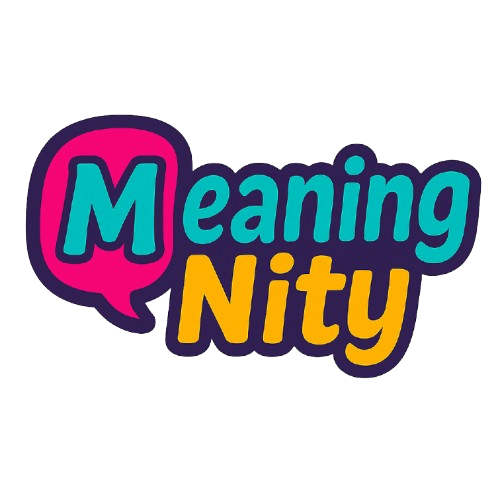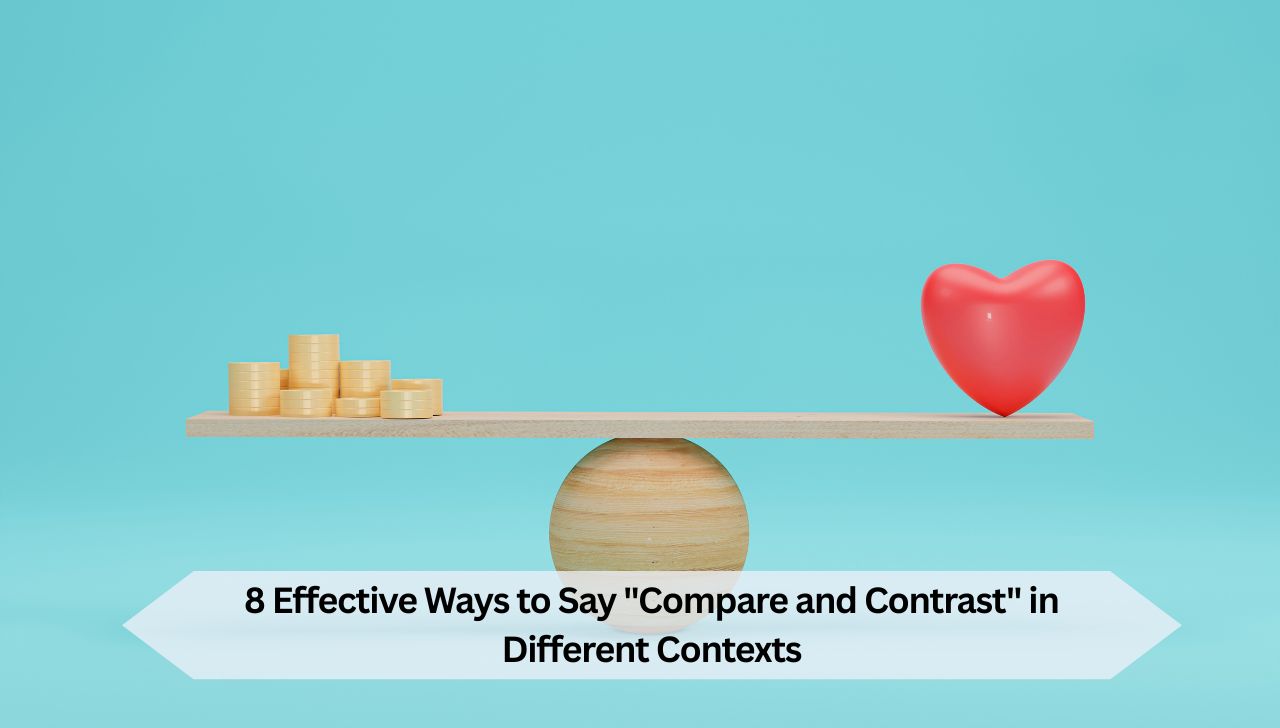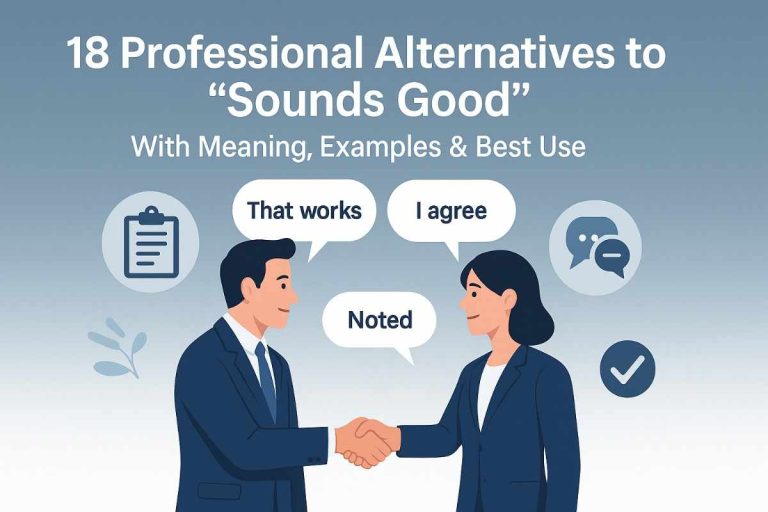8 Effective Ways to Say “Compare and Contrast” in Different Contexts
“Compare and contrast” is something we hear a lot. It’s how we look at two things to find out what’s similar and what’s different. It sounds simple, right? But it’s not just about picking out the obvious. It’s about thinking deeply and explaining clearly.
We do this every day—comparing products, movies, ideas, or even people. The more we understand how to compare and contrast, the better we get at making decisions and understanding the world around us. But here’s the catch: if we always use the same words, our writing sounds boring. That’s why it’s useful to know different ways to say “compare and contrast.”
Why It’s Important to Know Different Ways to Say “Compare and Contrast”
Using the same words over and over can make your writing feel dull. If you stick to “compare and contrast” all the time, your readers might lose interest. But if you mix things up, you can keep your writing fresh.
Also, sometimes a different word can say exactly what you mean. For example, “compare” can mean looking at both similarities and differences, but other words can focus on just the differences or just the similarities. Choosing the right word makes your writing clearer and more interesting.
Dive Deeper : 20 Professional Ways to Say “It Was a Pleasure Meeting You”
Synonyms for “Compare and Contrast”: Simple Alternatives
Here are some easy words to use instead of “compare and contrast.”
1. “Examine”
When you “examine” two things, you look at them carefully. It’s not just about comparing them; it’s about understanding them deeply. Example: “Let’s examine the pros and cons of both options.”
2. “Assess”
To “assess” means to look at the value or quality of something. Example: “We need to assess both plans before making a decision.”
3. “Analyze”
“Analyze” means to break things down and look at the details. It’s great when you want to dig deeper. Example: “Let’s analyze the differences between these two theories.”
4. “Distinguish”
When you “distinguish” two things, you point out what makes them different. Example: “It’s easy to distinguish between the two products based on their features.”
5. “Differentiate”
“Differentiate” means to show how two things are different. Example: “It’s important to differentiate between the two methods.”
6. “Contrast”
Sometimes, you just want to focus on the differences. “Contrast” is perfect for that. Example: “Let’s contrast these two ideas.”
7. “Relate”
To “relate” means to show how two things are connected. Example: “We can relate these two events to understand their causes.”
Each of these words helps you explain things in a clear, different way. They make your writing sound less repetitive and more specific.
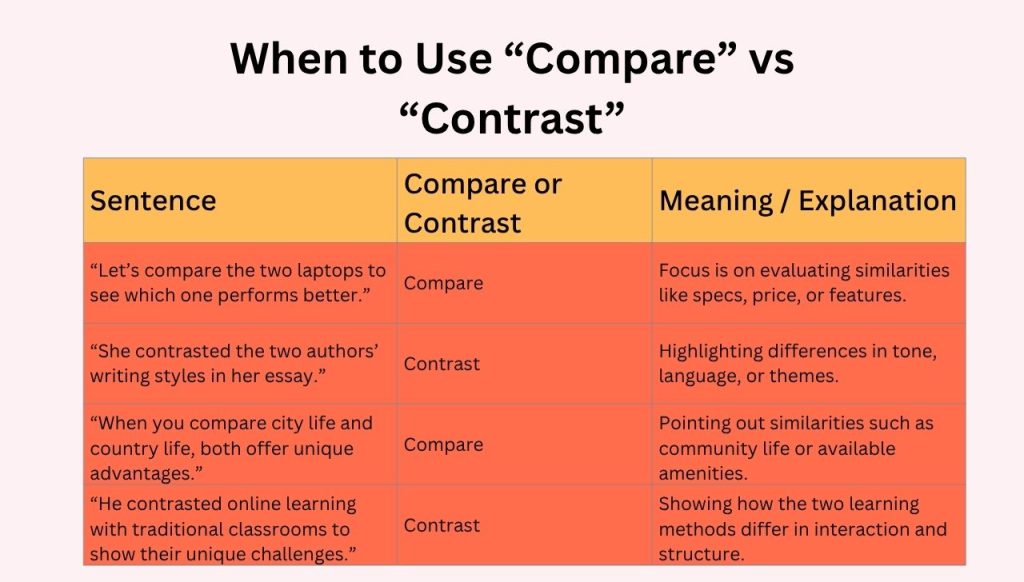
When to Use “Compare” vs “Contrast”
| # | Sentence | Compare or Contrast | Meaning / Explanation |
|---|---|---|---|
| 1 | “Let’s compare the two laptops to see which one performs better.” | Compare | Focus is on evaluating similarities like specs, price, or features. |
| 2 | “She contrasted the two authors’ writing styles in her essay.” | Contrast | Highlighting differences in tone, language, or themes. |
| 3 | “When you compare city life and country life, both offer unique advantages.” | Compare | Pointing out similarities such as community life or available amenities. |
| 4 | “He contrasted online learning with traditional classrooms to show their unique challenges.” | Contrast | Showing how the two learning methods differ in interaction and structure. |
| 5 | “The teacher asked the students to compare mammals and reptiles.” | Compare | Looking for shared traits like being vertebrates or needing oxygen. |
| 6 | “The report contrasts last year’s sales with this year’s results.” | Contrast | Highlighting changes or differences in performance over time. |
| 7 | “Compare the roles of the president and the prime minister in different governments.” | Compare | Finding common leadership functions or responsibilities. |
| 8 | “She contrasted her childhood with her daughter’s to reflect on how times have changed.” | Contrast | Focusing on generational differences in experiences. |
| 9 | “Can you compare the themes in these two novels?” | Compare | Looking for thematic similarities like love, loss, or courage. |
| 10 | “The scientist contrasted the results of two experiments to find out what changed.” | Contrast | Emphasizing different outcomes or variables in research. |
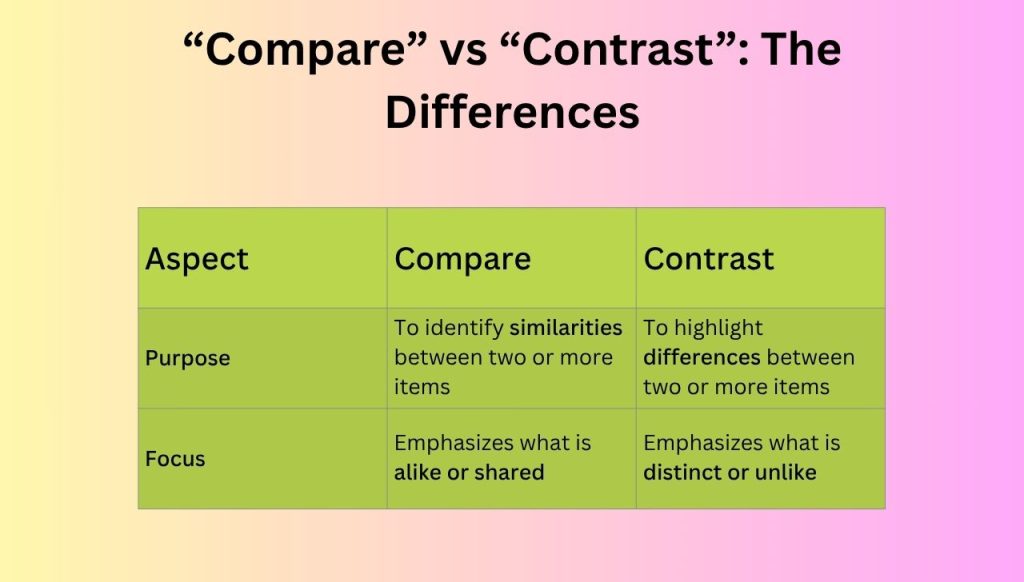
“Compare” vs “Contrast”: The Differences
| Aspect | Compare | Contrast |
|---|---|---|
| Purpose | To identify similarities between two or more items | To highlight differences between two or more items |
| Focus | Emphasizes what is alike or shared | Emphasizes what is distinct or unlike |
| Method | Uses descriptive words and phrases to show common features or qualities | Uses descriptive words and phrases to emphasize distinguishing characteristics |
| Common Phrases | “Similarly,” “both,” “likewise,” “in the same way” | “On the other hand,” “unlike,” “in contrast,” “whereas” |
| Example | “Both smartphones feature high-resolution displays.” | “The first smartphone excels in camera quality, while the second lasts longer on battery.” |
Dive Deeper : 20 Professional Way to Say “Please Feel Free”
Conclusion
Being able to compare and contrast is a key skill, but knowing how to mix up your words makes it even better. By using synonyms, you can keep your writing fresh and clear. The next time you compare two things, try using one of these alternatives. You’ll sound more precise and interesting. And remember: the more you practice, the better you’ll get at finding the perfect word for the job.
